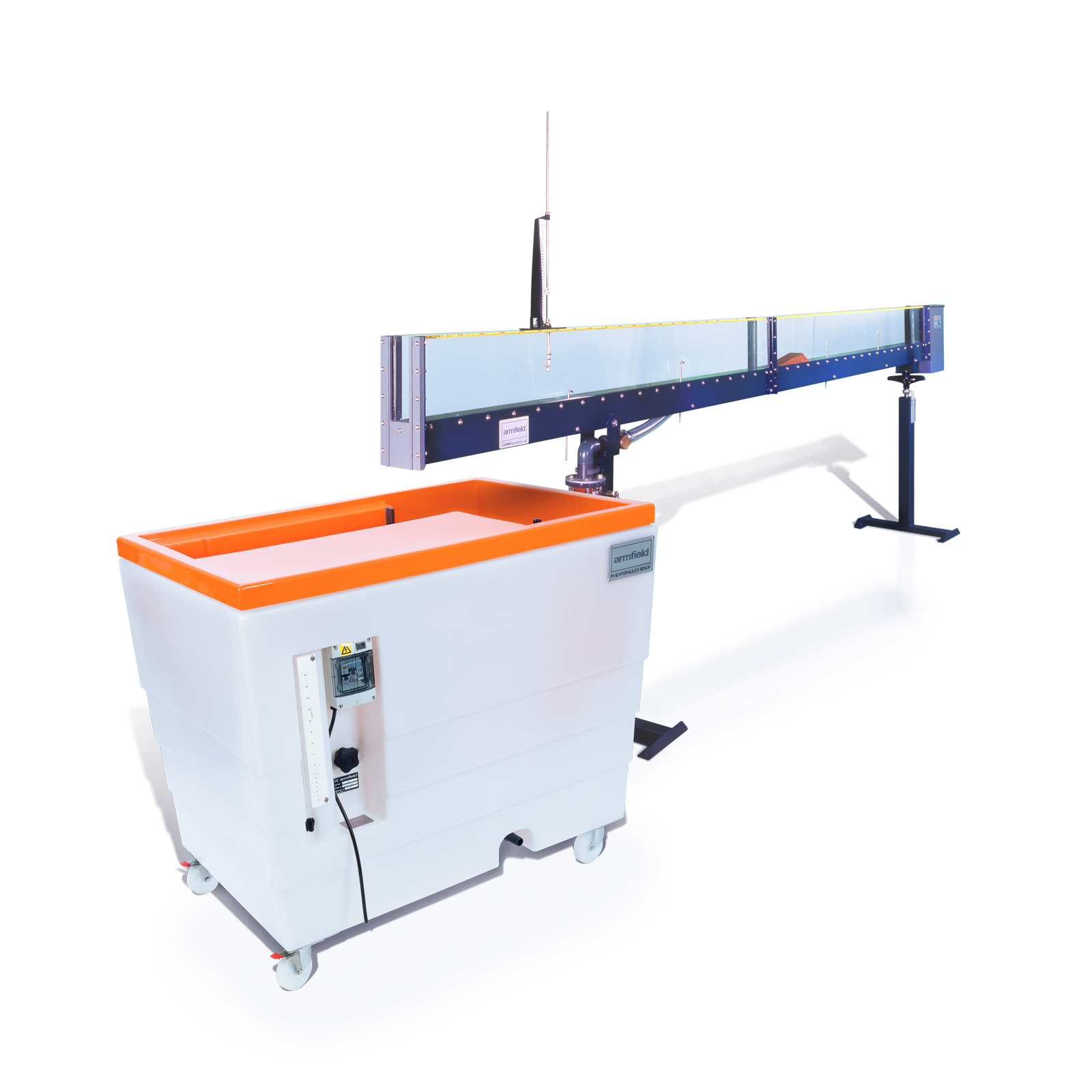
Multi-Purpose Teaching Flume
26 พฤษภาคม 2566
ผู้ชม 578 ผู้ชม
DESCRIPTION
The Armfield Multi-purpose Teaching Flume has been specifically designed to demonstrate the principles of fluid mechanics when applied to engineering structures in open channel flow.
The C4-MKII is a small open channel flume, available in 2.5m or 5.0m lengths, with clear acrylic sides to the working section for complete visibility of the flow.
The channel is fitted with a PVC inlet tank, and is designed for free discharge into the Hydraulics Bench. The flume is mounted on a rigid framework, and can be tilted by use of a calibrated screwjack, which enables accurate slope adjustment of the channel.
The inlet tank incorporates a stilling arrangement to diffuse the water flow prior to entry into the channel, ensuring smooth uniform flow. The level in the working section of the flume is controlled using an overshot weir (stop logs) at the discharge end.
Bed-pressure tappings and fixing points for models are provided.
A longitudinal scale positioned at the top of the channel enables depth gauges and pitot static tubes to be accurately positioned along the channel length.
The flume is designed for use with a standard Armfield F1-10 Hydraulics Bench, which provides the pumped water flow, the flow control valve and a volumetric tank for flow measurement.
Also available is an optional flow meter, which can be fitted to the C4-MKII to enable direct flow measurements to be taken.
Optional educational software is available (C4-MKII-ABASIC) offering a complete teaching package of coursework. The student manually enters data in the software, which can then be used for calculations, data processing and graph plotting.
MODELS AND GAUGES SUPPLIED
Venturi flume
Sharp and broad-crested weirs
Crump weir
Adjustable undershot weir
Two Vernier level gauges (Hook and point gauges)
CHANNEL DIMENSIONS
Width 76mm
Height 250mm
Channel Slope Adjustable between -1% and +3%
EPERIMENTAL CONTENT
- Study of open channel flume
- Use of hook and point gauges to measure water level
- Learning how to apply force-momentum and steady-flow energy equations to simple flow situations
- Understanding the relationship between water level above the crest of a weir and flow rate over the weir
- Using hydraulic structures to control level, eg siphon spillways
- Understanding sub and super-critical flow and the underlying characteristics of waves
- Hydraulic jump
- Using hydraulic structures for control of flow, eg sluice gate
- Applying and understanding Manning’s formula
- Use of a Pitot static tube to measure flow rate and velocity profiles (using optional C4-61)







